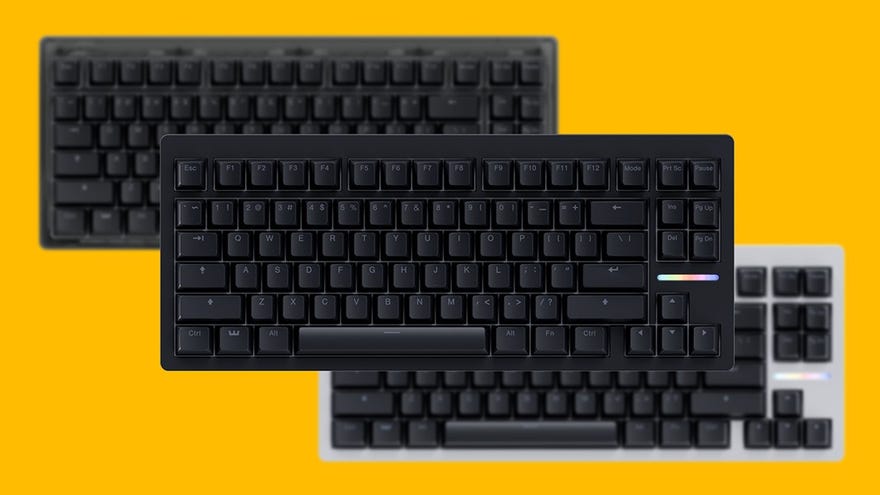Rappy Snappy beats Snap Tap rap, say click-clack manufacts
It's something to do with cheating keyboards, I think
Gaming hardware makers have often walked the line between enabling a player’s true skills, and simply delivering them an unfair advantage. Sometimes, honest accessibility aids are falsely accused of being cheating tools; other times, a monitor will straight-up play League of Legends for you. This week, developments in gaming keyboards have sparked a new debate on what does and doesn’t fall within the scope of fair play, with mechanical keeb specialists Wooting declaring in no uncertain terms that "Rappy Snappy is not the same as Snap Tap." Cool, glad that’s cleared up.
If you’re convinced that only about half that sentence is comprised of real words... you’re right, but bear with me. A while back, Wooting announced the 80HE, a superfast Hall Effect keyboard that would introduce their new Rappy Snappy feature. This tracks two keys of your choosing and allows one of them to activate even when the other is already being partially pressed – unlike how most keyboards only track one input at a time. In theory, this enables faster side-to-side strafing in pacey FPS games like Counter-Strike 2 or Valorant, as you don't have to fully lift your finger off one directional key before you can start moving in the opposite direction. Unlike your hapless, technologically inferior opponent, who'll likely be full of holes before they can sort their mutually exclusive feet.
The 80HE is due to launch this September, but Razer – the dark green Goliath to Wooting’s presumably normal skin-coloured David – have pipped it to the post, releasing a firmware update to their existing Huntsman V3 Pro keyboards that adds a similar feature called Snap Tap. Like Rappy Snappy – which it turns out is really hard not to type as Snappy Tappy – Snap Tap allows for the same rapid strafing by letting you hold down one directional key and quickly hammer the opposite key for optimal sideways dodging.
Far from ushering in a new era of meritocratic manshooting, however, the near-simultaneous arrival of these duelling keyboard technologies has instead fuelled concern that such SnappyTapRapRapBabap systems are tantamount to cheating, with detractors citing similarities to similar-performing scripts that exist for games like Team Fortress 2 and CS2 progenitor CS:GO. Scripts, as a concept, tend to occupy that grey area between 'Using the advantages available' and 'Being a cheating toe-rag', but I suspect most online shootists would agree that deploying them is not considered particularly good form.
Wooting elected to go on the defensive, tXeeting a series of tXeets that explained how Rappy Snappy is functionally distinct from Razer’s Snap Tap – and therefore not as much of a competitive no-no as it might appear. In short, Wooting argue that Rappy Snappy only registers the input of whichever key is pressed in deeper; this still allows for faster transitions, because one key doesn’t need to be fully released before the next input can take place, but its effective usage still requires the player to put more force into just one key at a time. Snap Tap, on the other hand, merely registers the most recent input, meaning a player could (for example) fully hold down the D key with one finger and just mash the A key to strafe.
In other words, Razer’s system is more comprehensively flouting the comp-shooter rule of only one input being allowed at a time, whereas Wooting’s is... just fudging it a bit, I suppose? It’s still removing the need for a key to fully spring back before the initial input is considered complete, but it does sound like you’d still be manually and rapidly pressing both keys, as you would on a bog-standard keyboard. Snap Tap, by allowing for one key to be held down yet still register multiple inputs, probably does come closer to self-playing territory.
Either way, those looking to claim the supposed advantages of these systems may want to wait and see how they fare with anti-cheat systems. Valve don’t seem to be doling out VAC bans for those using Snap Tap in CS2, but different games will have different rules on hardware that could be considered assistive. And not just shooters, either: rhythm game and minor internet sensation Osu! enforces a ban on "anything that decreases the skill required to play", a rule of which these input-boosting tools could very feasibly fall foul.


